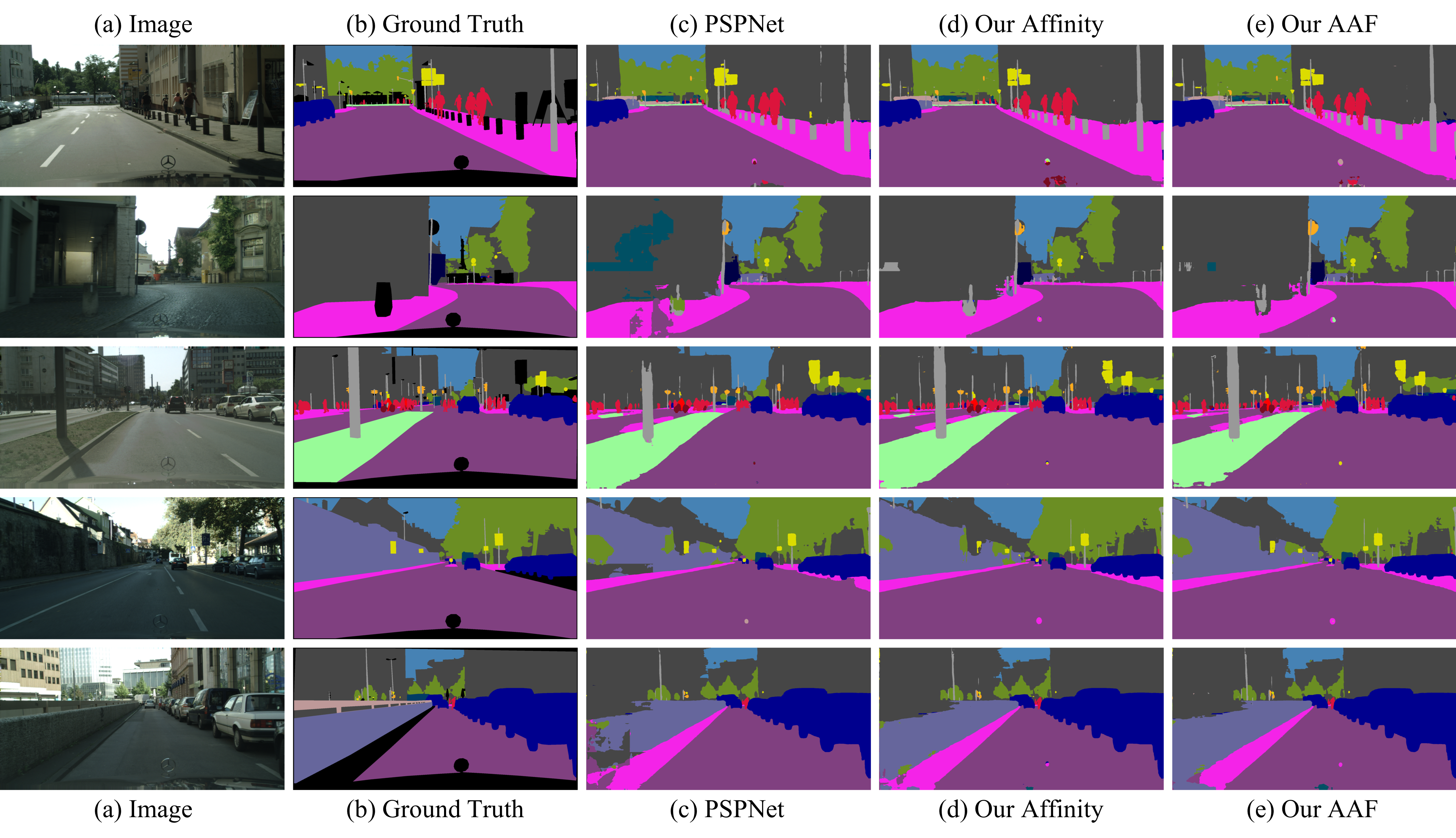Adaptive Affinity Fields for Semantic Segmentation

Abstract
Semantic segmentation has made much progress with increasingly powerful pixel-wise classifiers and incorporating structural priors via Conditional Random Fields (CRF) or Generative Adversarial Networks (GAN). We propose a simpler alternative that learns to verify the spatial structure of segmentation during training only. Unlike existing approaches that enforce semantic labels on individual pixels and match labels between neighbouring pixels, we propose the concept of Adaptive Affinity Fields (AAF) to capture and match the semantic relations between neighbouring pixels in the label space. We use adversarial learning to select the optimal affinity field size for each semantic category. It is formulated as a minimax problem, optimizing our segmentation neural network in a best worst-case learning scenario. AAF is versatile for representing structures as a collection of pixel-centric relations, easier to train than GAN and more efficient than CRF without run-time inference. Our extensive evaluations on PASCAL VOC 2012, Cityscapes, and GTA5 datasets demonstrate its above-par segmentation performance and robust generalization across domains.
Citation
@inproceedings{aaf2018,
author = {Ke, Tsung-Wei and Hwang, Jyh-Jing and Liu, Ziwei and Yu, Stella X.},
title = {Adaptive Affinity Fields for Semantic Segmentation},
booktitle = {European Conference on Computer Vision (ECCV)},
month = {September},
year = {2018}
}
PASCAL VOC 2012 Validation Set Results

Cityscapes Validation Set Results



